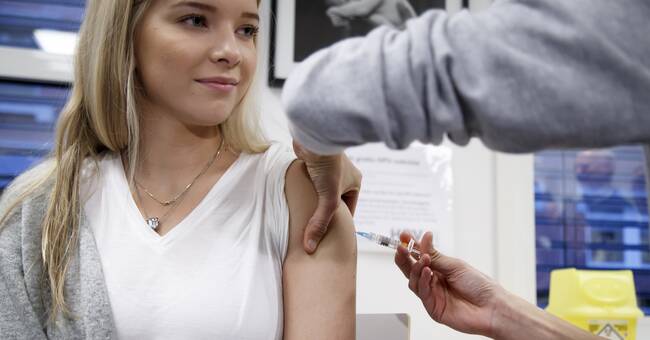Researchers at Karolinska Institutet have analyzed 1.7 million women, of whom just over 500,000 had been vaccinated against human papillomavirus (hpv), ie the sexually transmitted virus that causes cervical cancer.
Most, but not all, of the study were vaccinated before the age of 17.
The participants were followed for an average of eleven years.
Nineteen vaccinated women developed cancer.
The corresponding figure among the unvaccinated was 538.
- The effect was greater than we thought, says Pär Sparén, professor of medical epidemiology and responsible for the study published in the New England Journal of Medicine.
There are several different viruses
The subsequent analysis shows that an HPV vaccination means a risk reduction of as much as 88 percent if the woman is vaccinated before the age of 17, while a vaccination between the ages of 17 and 30 means a halved risk of cervical cancer.
There are several variants of human papillomavirus, of which 12-13 different types are considered oncogenic, ie they cause cancer.
Two of these, hpv 16 and 18 respectively, are extra common and are believed to be behind 70 percent of all cervical cancer.
The women included in the study received a vaccine aimed at these two types of HPV and two types that cause genital warts (condyloma).
- It could explain the 19 women who, despite vaccination, suffered from cancer, that they became infected with a different type of HPV than the vaccine protects against, says Pär Sparén.
"Could eradicate cervical cancer"
From August, boys in year 5 hpv vaccination will also be offered in Sweden, as human papillomavirus can also cause throat, penis and anal cancer, which in the long run also benefits girls.
- Men act as vectors that carry the infection further.
Just as with the new coronavirus, it is about reducing the spread of infection and the so-called R-number.
If we reduce the R-number among the younger ones, the virus will not reproduce among the older ones, because the elderly do not change partners at all as often, and if we reduce it enough, we could in principle eradicate cervical cancer, says Pär Sparén.

